Driveway gates are one of those many home features that can look good and work hard. They make a statement when people arrive at your home. They serve as an extension of your fence so you don’t have to worry about kids and pets escaping. And they bring a general sense of security to the home front.
They’re also one of those many home features where the options can quickly become overwhelming. Do I want a simple, manual gate? Or a phone-controlled entry system that’s tied to an alarm?
If you’re considering a driveway security gate but don’t know where to start, these are some of the factors we walk through with our clients.
Materials and Style
Most driveway gates are made out of metal or wood. For metal, powder-coated aluminum or steel are the industry standards. For wood, cedar is favored for being durable, pest-repellant, and moisture-resistant.
Naturally, different materials and styles set different tones. (When’s the last time you saw a scalloped red-cedar gate leading to a commercial warehouse?)
When collaborating with our residential clients, we consider the style of their home’s architecture and/or fencing. We work with a variety of decorative metal gates that can be customized to different driveways. We also handcraft wood gates in our workshop. This includes rail and picket styles, shadowbox, solid wood, and others, with a wide variety of post tops and edge details for adding personality.
When working with commercial facilities, we typically use metal sliding or double-swing gates that provide excellent security and match our chain-link or decorative steel fences.

Gate Swing and Entry Method
The way your driveway gate swings (in or out) and how you open it (automatic, keypad, etc.) also deserves close consideration.
Most driveway gates swing in, which can create a more welcoming feel for guests. But if your driveway space is limited, or your property slopes up toward your house, a gate that swings out might be the better choice. Commercial properties and neighborhoods may also want to consider cantilever sliding gates.
Common entry methods include: automatic entry, keypad entry (via physical buttons, a touchscreen, or even a phone call), and remote entry (similar to a garage door opener).
When choosing an entry method, work backward from day-to-day traffic and activities. Consider: How many residents—and visitors—come and go? What level of security do you desire?
Integrated Security
The physical barrier of the gate offers one layer of security, and the entry method creates another. For properties requiring even tighter security, such as high-profile residences or commercial facilities, there’s a suite of add-ons to consider.
These features include security cameras, lighting, and alarm systems, which can be designed as a system and blended into your property. We can work with you to integrate the specific features you need, using technology from brands including Ring, CellGate, and DoorBird.
***
At Integrous, we specialize in creating custom and semi-custom fences and gates that are tailored to your style and needs. And we take time with the process to make sure you’re happy with every detail. Because even something that seems simple—like a driveway gate—can actually be quite complex without the right partner.


